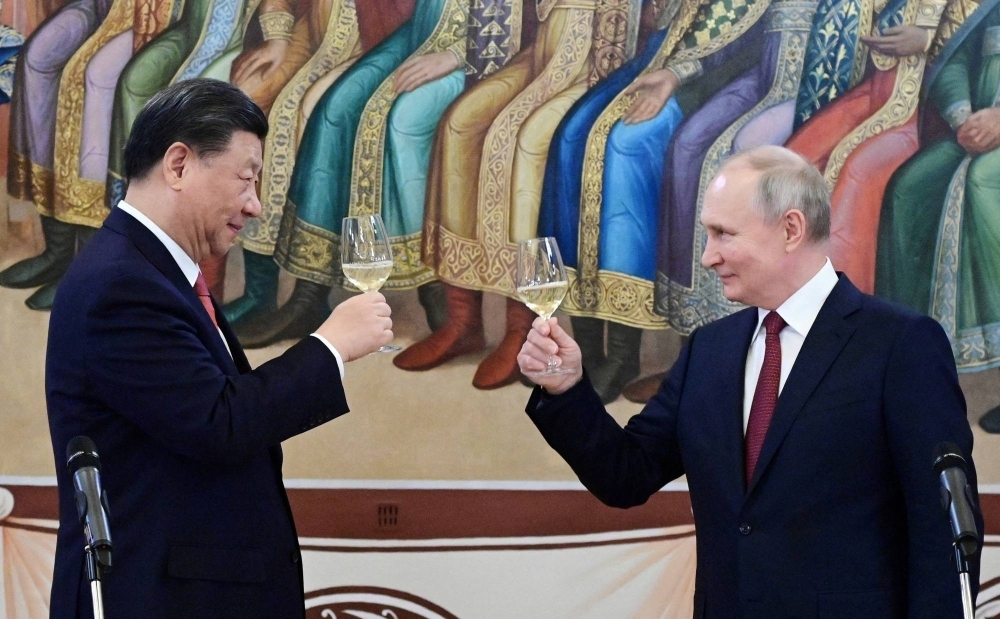With hindsight, the last time Vladimir Putin visited Xi Jinping in China, just three weeks before Russia invaded Ukraine, was a moment of hubris — two supremely confident leaders marking their bid to shake up a world organized by and for the U.S. and its allies.
Well, they certainly shook it up, even if not in the way they intended. Putin’s catastrophic error in attempting to invade a neighbor the size of France as though it were a glorified training exercise has, by some estimates, resulted in halving Russia’s military strength.
The supercar that was China’s economy, meanwhile, has sputtered into the slow lane, with forecasts of when it will overtake the U.S. in current dollar terms pushed into the future. So, it’s tempting to imagine Xi and an increasingly dependent Putin humbled at their reunion, the sinews of their "unlimited’’ bond already tearing. But that, to borrow a wonderful phrase from Sarah Paine, a professor of history and grand strategy at the U.S. Naval War College, would be playing "half-court tennis” — the kind where you never see the next ball coming because you aren’t paying attention to the other side’s game.



